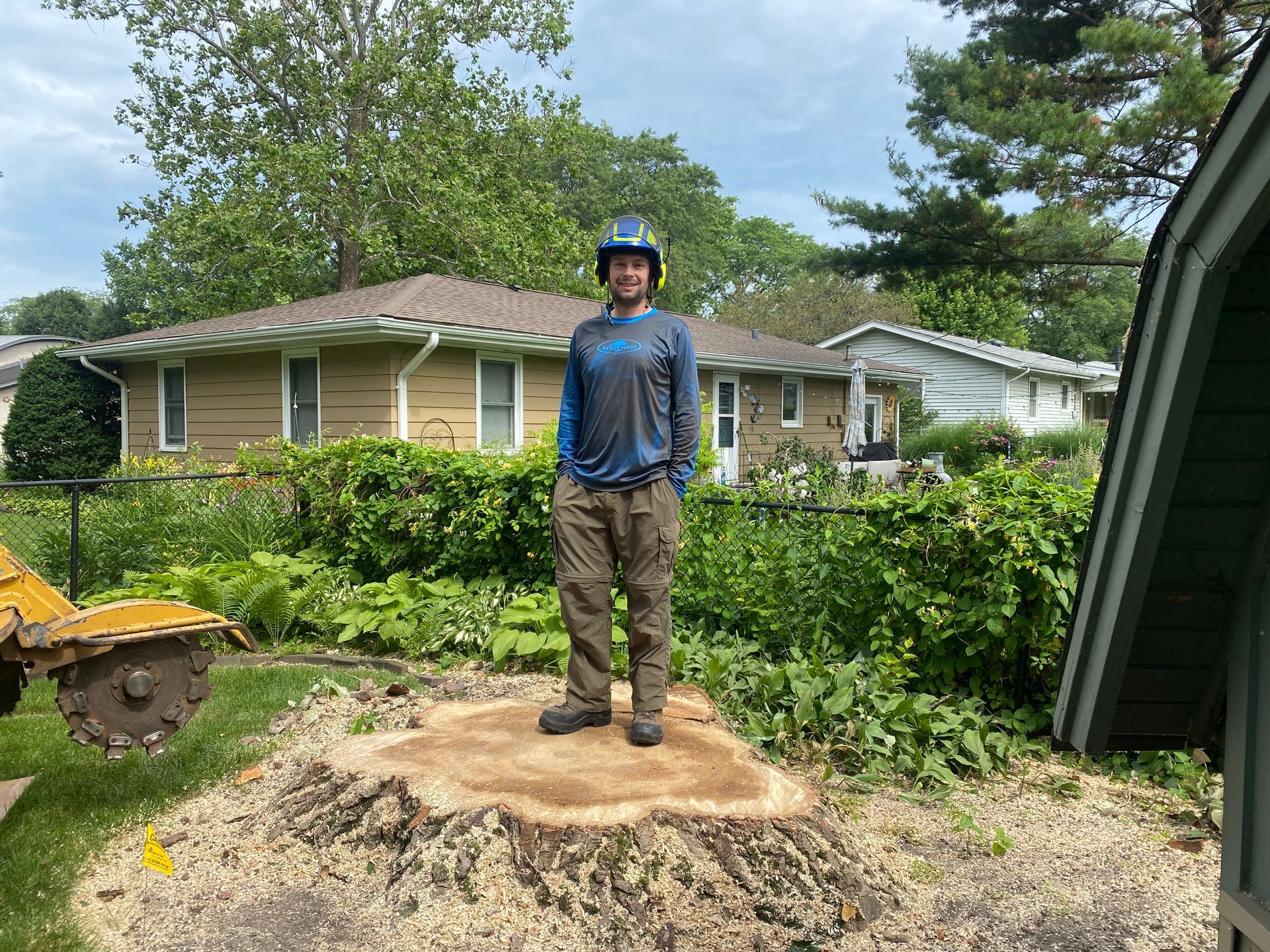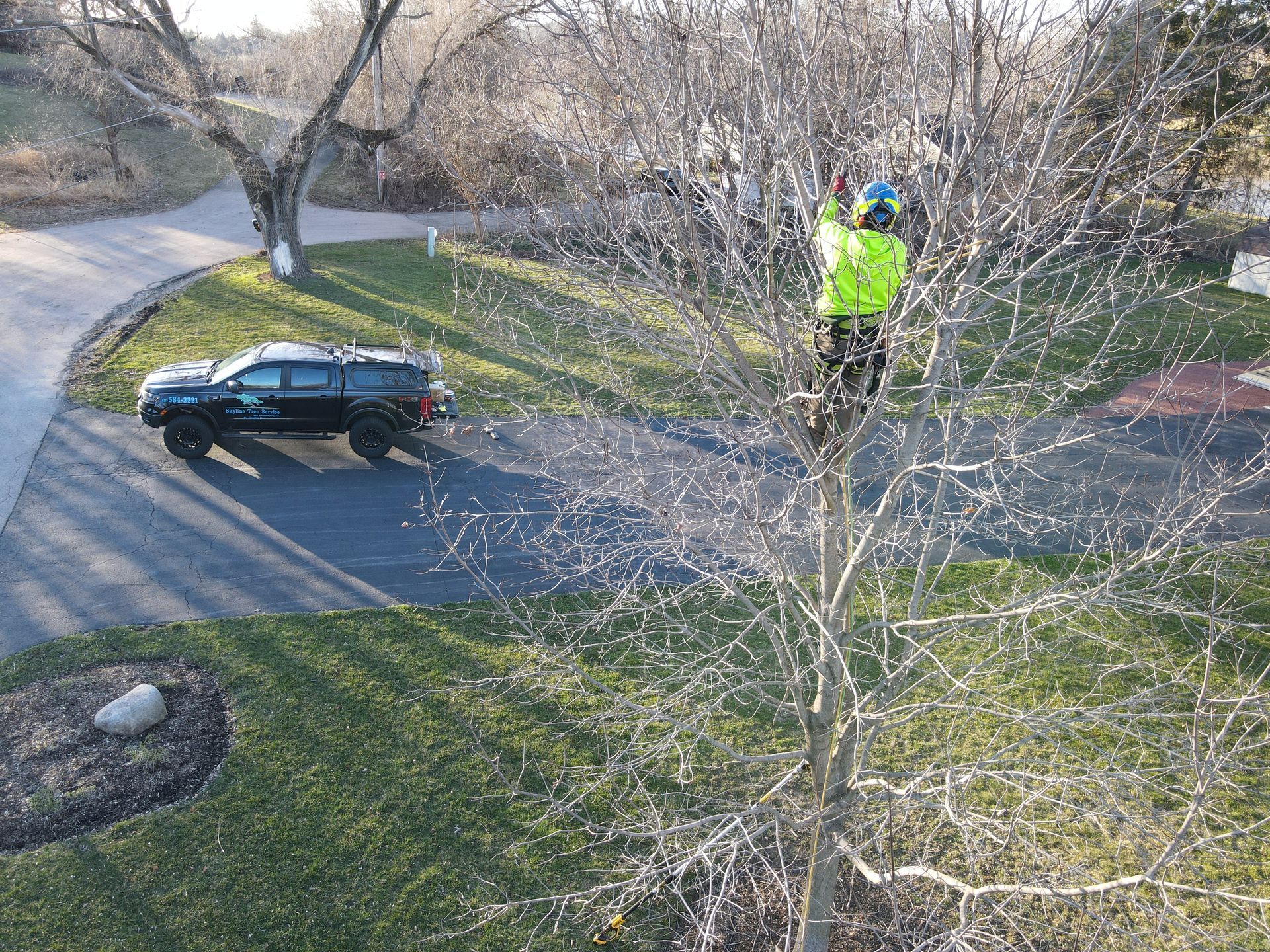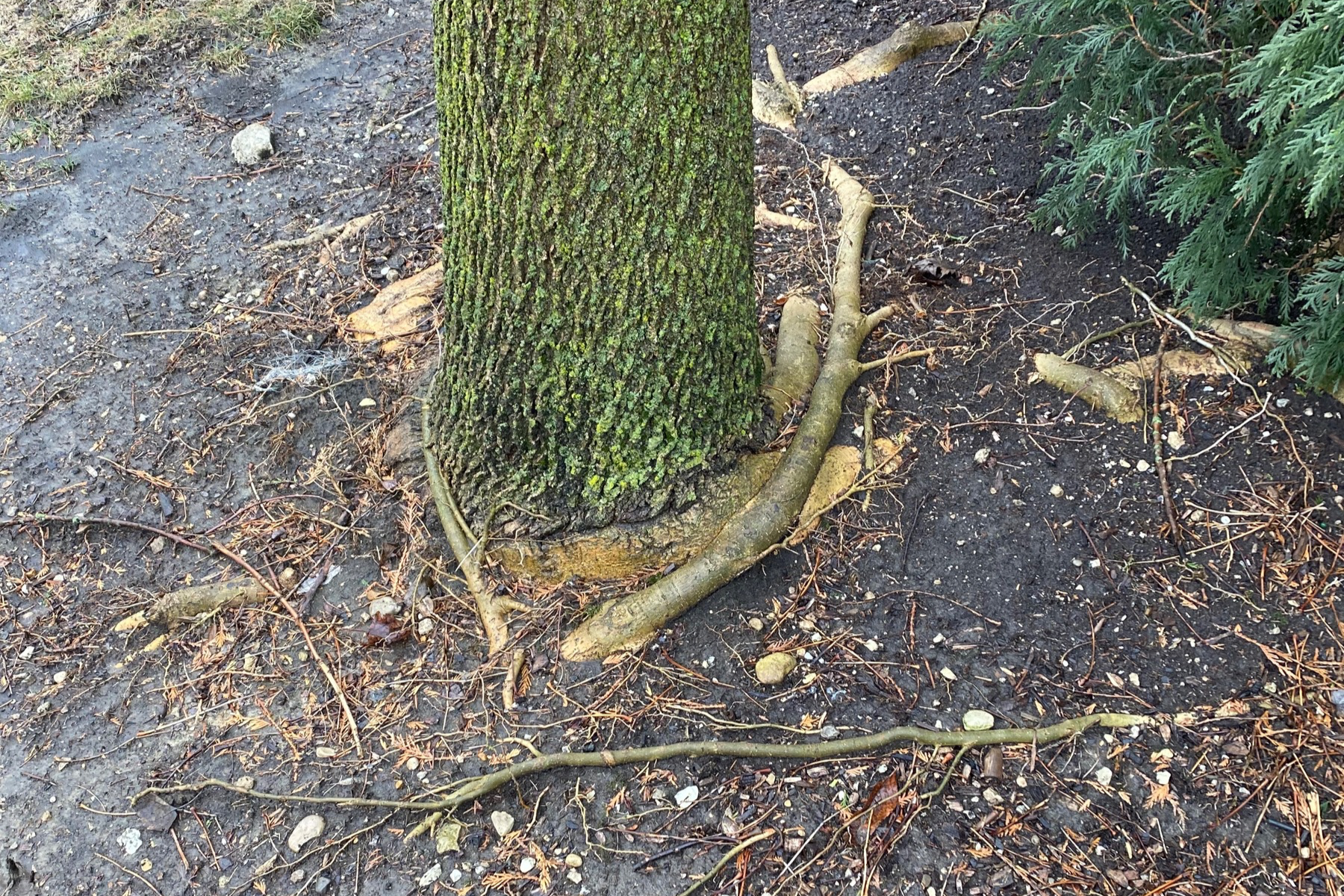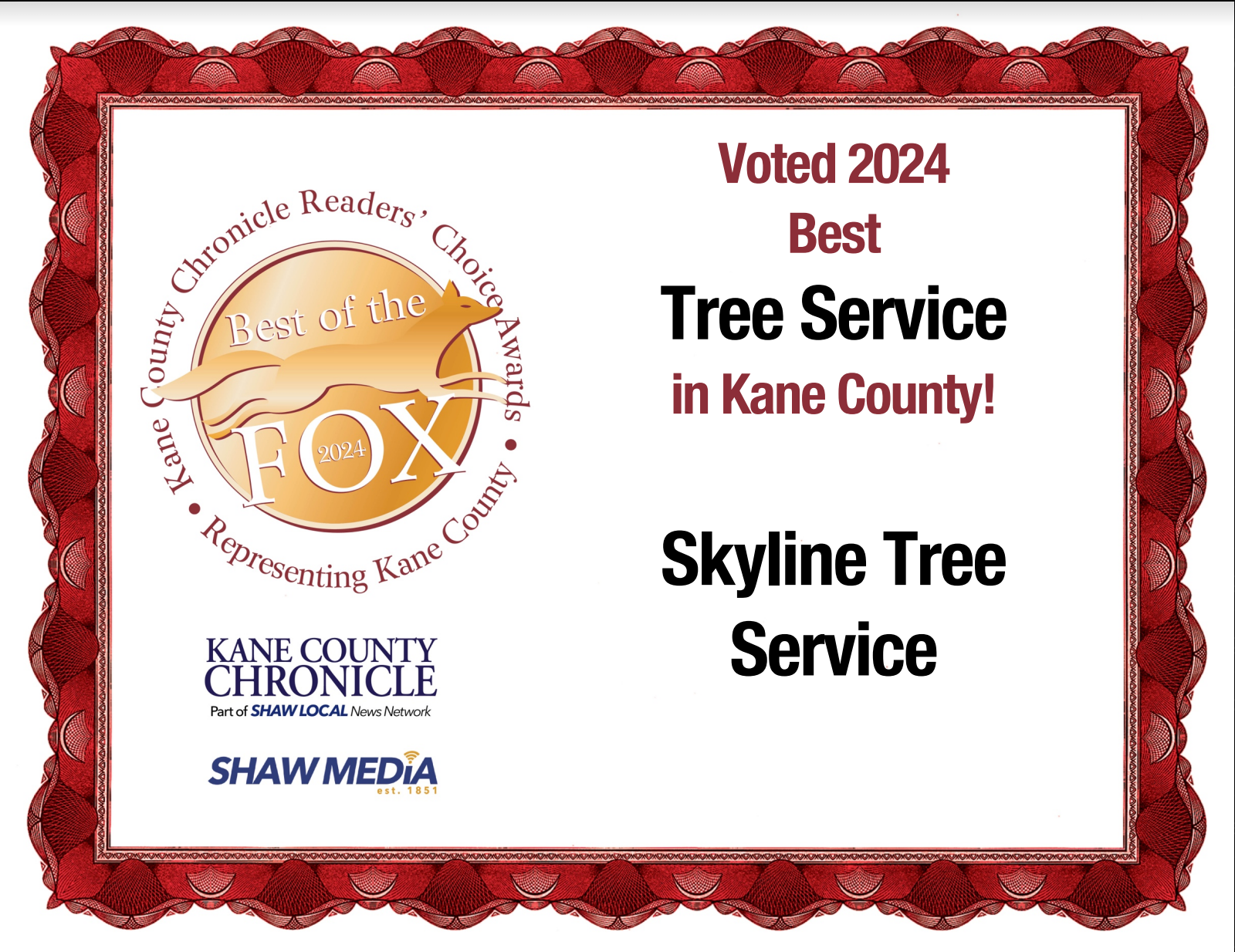Winter Burn Plant Healthcare
Nurturing Your Landscape Through Winter: Understanding and Preventing Winter Burn

As winter's chill blankets the landscape, our trees and shrubs face unique challenges, with winter burn emerging as a common concern. At Skyline Tree Service, we recognize the importance of proactive plant healthcare, especially during the colder months. In this blog post, we delve into the phenomenon of winter burn, its causes, and actionable steps to shield your green companions from its grasp.
What is Winter Burn?
Winter burn, or desiccation, is a condition where evergreen plants, particularly needled ones, experience dehydration due to a loss of water through their leaves or needles. This occurs when the plant's demand for water exceeds its ability to absorb it from frozen or dry soil.
Causes of Winter Burn:
- Harsh Winter Winds: Strong, cold winds accelerate water loss from evergreen needles.
- Frozen Ground: When the ground is frozen, plant roots struggle to absorb water, leading to dehydration.
- Low Temperatures: Extremely low temperatures can cause water within plant cells to freeze, damaging cell structures.
- Sunlight Exposure: Bright winter sunlight, combined with frozen ground, intensifies water loss through transpiration.
Recognizing Winter Burn Symptoms:
Identifying winter burns is crucial for timely intervention. Look out for:
- Browning or discoloration of needle tips and margins.
- Curling or drooping needles.
- Premature needle drop.
Preventing Winter Burn:
- Anti-Desiccant Sprays: Applying anti-desiccant sprays forms a protective coating on needles, reducing water loss.
- Windbreaks: Erecting windbreaks, like burlap or snow fencing, shields plants from harsh winter winds.
- Watering Before Winter: Hydrate plants adequately in late fall to ensure sufficient moisture before the ground freezes.
- Mulching: A layer of organic mulch around plants conserves soil moisture and moderates temperature.
- Avoid Salt Use: Minimize salt near plants, as it can lead to soil desiccation.
- Winter Watering: Water evergreens on warmer winter days to supplement moisture.
Skyline's Winter Plant Healthcare Services:
At Skyline Tree Service, our certified arborists provide specialized winter plant healthcare services to safeguard your landscape from winter burn. Our expertise includes:
- Winter Moisture Management: Tailored watering plans to address frozen ground challenges.
- Anti-Desiccant Treatments: Protective sprays to minimize water loss from evergreen needles.
- Winter Mulching: Application of organic mulch to conserve soil moisture and insulate roots.
- Diagnostic Assessments: Thorough evaluations to identify and address winter burn symptoms promptly.
35 Years of Experience in Winter Tree Care
As we celebrate over 35 years of excellence in plant healthcare, Skyline Tree Service remains committed to ensuring the vitality of your landscape in all seasons. Winter burn may be a winter reality, but with proactive plant healthcare measures, you can nurture your green companions through the cold months and witness their resilience come spring. Contact us today for comprehensive winter plant healthcare solutions tailored to your unique landscape.
Contact Us for Winter Tree Care
We will get back to you as soon as possible.
Please try again later.
Contact Us
We will get back to you as soon as possible.
Please try again later.




Contact
(630) 584-2221
Skylinetreeservice@mail.singleops.com
Serving Northern Illinois
Business Hours
- Mon - Fri
- -
- Sat - Sun
- Appointment Only
All Rights Reserved | Skyline Tree Service and Landscaping, Inc. | Designed by GW Branding Group





